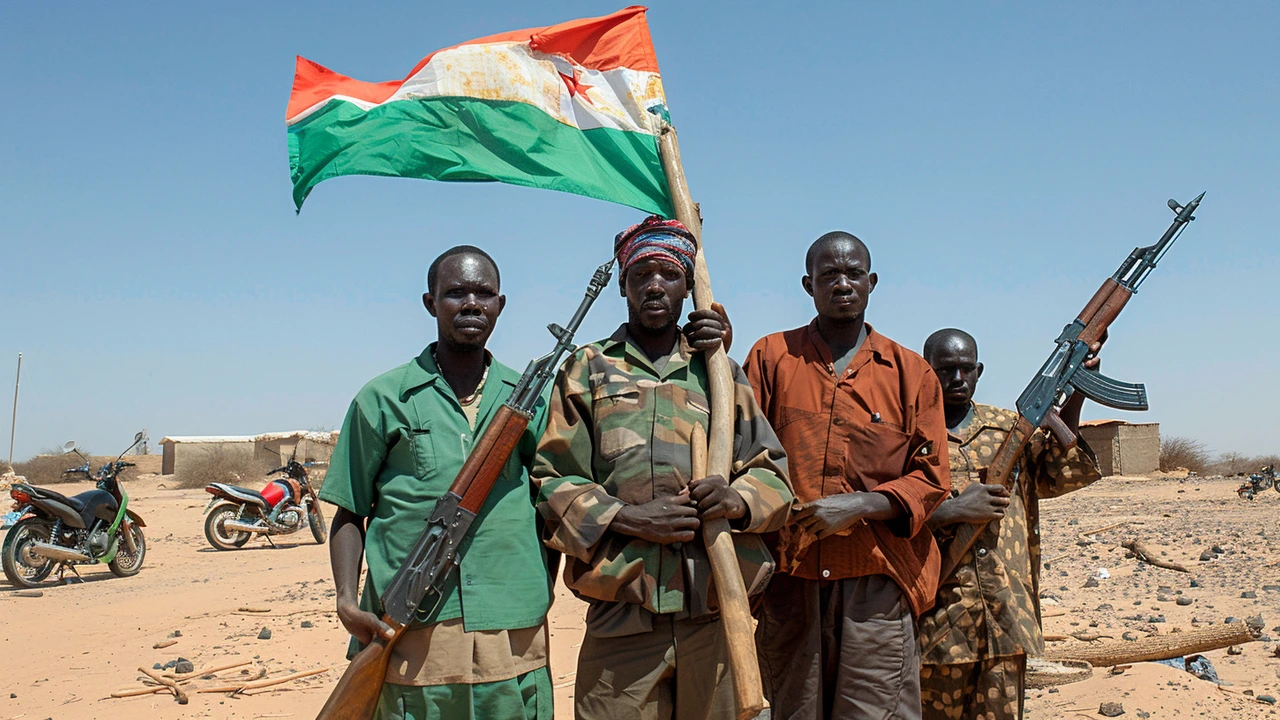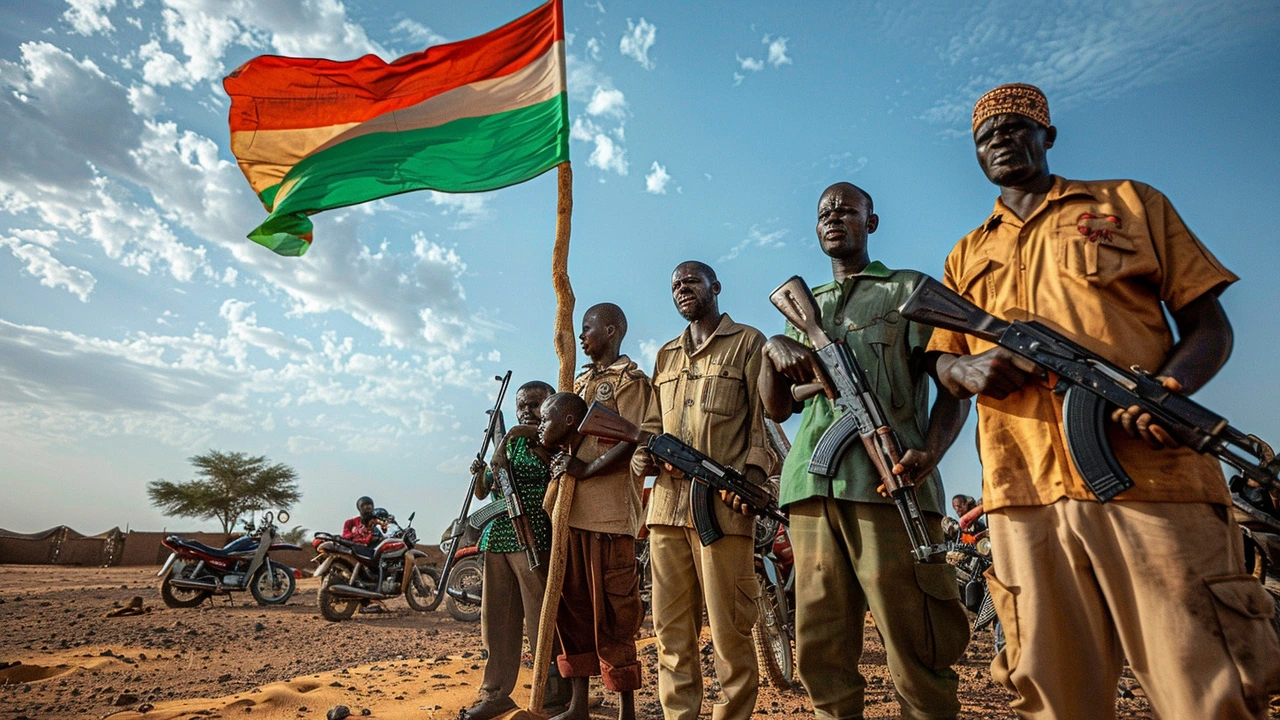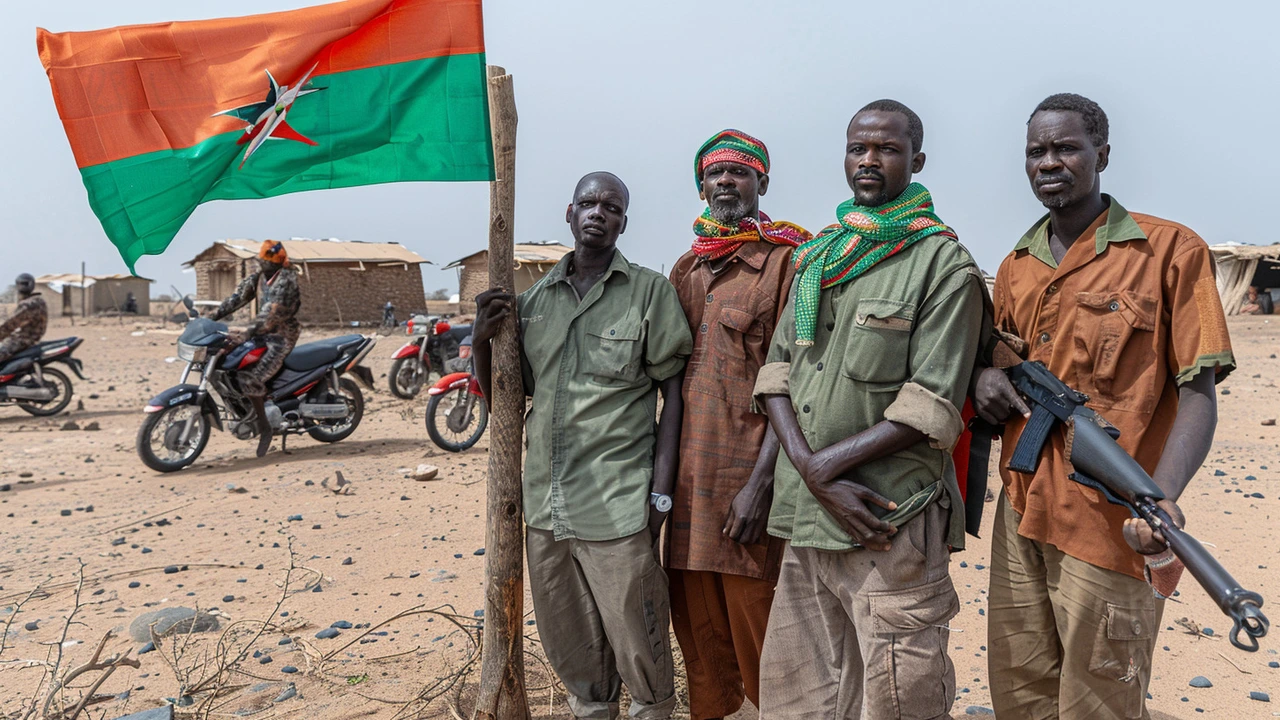Burkina Faso Junta Prolongs Rule by Five Years Amid Security Concerns
27 May, 2024Extension of Transition Period
In a significant and somewhat controversial move, Burkina Faso's acting President Captain Ibrahim Traoré has officially signed an amended Transition Charter that will extend the nation's transition period to five years. Traoré, who came to power through a coup in 2022, has taken this action to prolong his administration's rule. Originally, the transition was scheduled to conclude in July 2024, but the new charter stipulates a sixty-month period starting from July 2, 2024. This decision has come under intense scrutiny, though the charter does allow for the possibility of earlier elections should the country’s security situation notably improve.
Leadership Titles and Election Provisions
Captain Ibrahim Traoré now holds a consolidation of titles: President of Faso, Head of State, and Supreme Commander of the Armed Forces. This accumulation of power is viewed by some as a bid to secure his influence over the country as Burkina Faso navigates this tumultuous time. Moreover, under the new charter, Traoré, alongside the Prime Minister and the President of the Transitional Legislative Assembly, will retain the eligibility to participate in the elections marking the end of this prolonged transition period.
Instability and Its Impacts
Burkina Faso has been no stranger to political turbulence, and Traoré's continuation in power is reflective of a broader pattern across West Africa where military coups have tipped the balance against democratically-elected governments. Each of these coups cites unmet promises to citizens as part of their justification. With Traoré's junta now firmly in place, they have wrestled with immense security challenges that they originally pointed to as the reason for the takeover.

Human Rights Concerns
Amid this political instability, the situation on the ground remains dire. According to Human Rights Watch, the country has witnessed deteriorating human rights conditions and an alarming increase in violence. Fatal attacks perpetrated by Islamist groups, as well as abuses by the military and pro-government militias, have surged. This year alone has seen nearly 7,600 deaths in more than 2,000 violent incidents. Since the onset of the conflict in 2016, the violence has forced over 2 million people to flee their homes.
A Closer Look at the Past and Present
To fully understand the gravity of this situation, it's essential to revisit recent history. The coup that installed Traoré followed a year of escalating violence and political dissatisfaction. Initially, there was hope that a new leadership might address deep-seated security concerns. Yet, as months passed and violence persisted, confidence in this administration's ability to manage the crisis waned.
The Broader Trend in West Africa
Burkina Faso's predicament is part of a disconcerting wave of military takeovers in West Africa. Nations like Mali and Guinea have experienced similar upheavals, each resulting in temporary military governance. These juntas often make promises of stabilization and eventual democratic elections, but frequently extend their rule, citing intractable security issues. This cycle has raised questions about the future of democracy in the region and the potential for permanent militarization of governance.

Local and International Reactions
Within Burkina Faso, reactions to the extension have been mixed. Some citizens, wearied by years of violence, cautiously support any bid to bring stability. Others view the extended transition as an alarming step away from democratic norms. Internationally, there is considerable concern. Organizations advocating for human rights and democratic governance urge a swift return to civilian rule and implore the junta to prioritize security and stability.
Looking Forward
The future for Burkina Faso remains mired in uncertainty. With an extended transition period, there is considerable pressure on Traoré's administration to deliver on its promises. The coming months and years will be crucial; whether the junta can stabilize the nation and eventually pave the way for peaceful, democratic elections remains to be seen. The eyes of both the nation's citizens and the international community will be fixed on Burkina Faso, hoping for a resolution to a crisis that has already claimed too many lives and led to widespread displacement.

 by
by